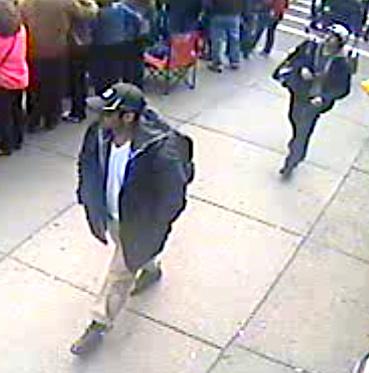As the NSA data mining story continues to unfold, we should begin asking how the Boston Marathon terrorist attack looks in relation to this situation. It seems the attack should make us worry or not worry much depending on how we perceive it.
Why We Should Worry
When we began learning how much the authorities already knew about Tamerlan Tsarnaev prior to the bombing, it was hard not to wonder why he wasn’t being watched more closely. And now that we know the NSA is mining so much data, the question becomes are they mining so much data they can’t truly keep track of dangerous people? It seems this could be the case.

Too much or not enough domestic spying?
Frankly, it’s hard to look at this and not see a certain level of incompetence on the part of the people mining this data in order to protect us. And the reason could be they were sifting through so much info they didn’t need and shouldn’t have been in possession of in the first place that they lost sight of the people they should have been watching more closely, like Tsarnaev. It really doesn’t make sense for the NSA to gather so much data when they could just ask companies for the data after an investigation of someone begins, which would happen after someone has allegedly done something that gives authorities a reason to begin an investigation.
All of this means the onus is now on the defenders of the data mining in the security apparatus who now claim “dozens” of attacks have been stopped through the program to show that it does work and exactly how it worked to stop so many potential attacks. Showing this would be the first step in the debate as to why we truly need such an invasive method of law enforcement.
Why We Shouldn’t Worry
Everyone seems to be worried the government now has all their meta data and it could be used in a nefarious way. But we have to ask is that even remotely realistic? Let’s look back at what the government knew or could have feasibly known about Tsarnaev prior to the bombing.
- Russia warned the U.S. he had become an extremist and was possibly involved with extremist groups.
- The FBI had questioned him.
- The CIA had placed him in their terrorist database.
- He read Al Qaeda’s online magazine and linked to radical Islamist videos on YouTube.
- During his 2012 trip to Russia, he visited areas known for radical Islamist military activity.
- He knew one of the victims of a triple murder we now know he committed on the ten year anniversary of the 9/11 attacks.
All of that the government basically knew if we are to couple this with the NSA mining data. Let that sink in.
Now realize it took three days after the bombing to find the photos/security videos of the brothers and even then law enforcement did not have their names. Judging from that, if your record is cleaner than Tsarnaev’s, you probably aren’t being watched too closely by Big Brother. So if you are worried the government might get hold of the Justin Bieber Fan Club’s email list and tell all my friends…I mean, your friends and family you are on it, fret not. It’s highly unlikely to happen.
All this taken together means defenders of the NSA data mining need to do two things to start the debate for keeping the program in place. First, give us some detailed examples of the alleged terror attacks that have been thwarted heavily using the program. And second, explain how the Boston Bombings occurred with a program in place that should have helped keep a closer eye on one of the men responsible.

